G20 summit in India proves damp squib for US and allies as divisions prevail
By Reza Javadi
The recent Group of Twenty (G20) summit, hosted by India, underscored fractious relationships and bitter disputes between the alliance members as they appeared divided over issues from the protracted war in Ukraine to the climate crisis, global food and energy security.
UN Secretary-General Antonio Guterres delivered a stark message at the G20 summit, highlighting the theme of the gathering - “One Earth, One Family, One Future” - and emphasizing that this theme, once idealistic, now serves as a sobering indictment of our times.
“This phrase inspired by the Maha Upanishad finds profound resonance in today’s world: not just as a timeless ideal – but as an indictment of our times,” the UN chief asserted.
“Because, if we are indeed one global family, we today resemble a rather dysfunctional one. Divisions are growing, tensions are flaring up and trust is eroding – which together raise the specter of fragmentation, and ultimately, confrontation.”
He hastened to add that these divisions are concerning in the present context but “spell catastrophe”, stressing the urgent need for effective international institutions rooted in 21st-century realities, built upon the principles of the UN Charter and international law.
“That is why I have been advocating for bold steps to make those global institutions truly universal and representative of today’s realities, and more responsive to the needs of developing economies,” he said.
Another contentious issue during the G20 summit revolved around the role of multilateral development banks in the contemporary world. This topic exacerbated tensions between the Global South and the West, as diverse viewpoints on the function and purpose of these institutions came to the fore.
Despite the G20's collective responsibility for 80 percent of global greenhouse gas emissions, the heads of state have failed to formulate a unified strategy or find solutions to address the global climate crisis.
In contrast, the BRICS alliance, a grouping of influential nations in the Global South, demonstrated practicality and effectiveness in addressing similar challenges.
In contrast to the G20, which originated from the G-7 and may lose significance without the participation of China and Russia, BRICS continues to evolve dynamically, believe observers.
G20 fails to build consensus on Ukraine war
Noticeably, both Russian President Vladimir Putin and Chinese President Xi Jinping skipped the G20 summit in New Delhi and instead sent their representatives.
The days of high-level talks ended with a final summit declaration that showed little or no consensus between the alliance members on key global issues, including the war in Ukraine.
Sergei Lavrov, the Russian foreign minister who attended the summit, told a news conference on Sunday that a "milestone" had been reached.
"Speaking frankly we didn't expect that. We were ready to defend our wording of the text. The Global South is no longer willing to be lectured," he said in answer to a question by reporters.
The joint communiqué stated that all countries should “refrain from action against the territorial integrity and sovereignty or political independence of any state," without any condemnations.
“It is a fact that this is today a very polarising issue and there are multiple views on this. There is a spectrum of views on this, so I think in all fairness it was only right to record what was the reality in the meeting rooms," India’s external affairs minister S Jaishankar, referring to the war.
Ukraine’s foreign ministry spokesman expressed its strong displeasure over the statement.
"In terms of Russia's aggression against Ukraine, G20 has nothing to be proud of. It is obvious that the participation of the Ukrainian side would allow the participants to better understand the situation," the ministry tweeted.
Pertinently, the previous G20 declaration in Indonesia issued last November referred to “aggression by the Russian Federation against Ukraine”. This time, the bloc appeared disintegrated.
BRICS: A growing bloc against G20
The divergence among the G20 member states comes as the BRICS alliance, which accounts for 36 percent of the global GDP and 47 percent of the world population, has proved a united front.
Last month, more than 40 heads of state and governments from the Global South, many of whom have for years denounced the US-led international order for sidelining them, gathered in South Africa’s commercial capital of Johannesburg for the 15th annual leaders’ summit of the BRICS.
In sharp contrast to simmering tensions between the 20 member states and growing fragmentation across the bloc, there is a glue of like-mindedness that binds the BRICS grouping together.
Its member nations participate in respective Free Trade Areas and often serve as dominant trade partners. This collective economic influence extends to 84 countries, with a combined GDP (PPP) twice that of Western powers.
The BRICS bloc's commitment to free trade contrasts sharply with the current Western approach characterized by sanctions and tariff barriers.
The dazzling emergence of BRICS has caused unease in the Western capitals, with the weaponization of the US dollar against Russia prompting a reevaluation of trade in local currencies, particularly through institutions like the New Development Bank (NDB), operated by BRICS.
A former White House adviser has been at pains to acknowledge that the de-dollarization could become a reality as a BRICS alternative to the dollar could enjoy high prospects for success.
Joseph Sullivan, who served as a staff economist at the White House Council of Economic Advisers during the Trump administration, wrote in Foreign Policy that a currency issued by Brazil, Russia, India, China and South Africa would pose a unique threat to the dollar's dominance.
"It'd be like a new union of up-and-coming discontents who, on the scale of GDP, now collectively outweigh not only the reigning hegemon, the United States, but the entire G-7 weight class put together," he wrote in the column published in April.
The war-centric policies of the US and its allies and the weaponization of the dollar means trust in the West’s so-called ‘rules-based order’ has diminished and the emerging world powers such as India and China are envisioning a new world order where the US no longer holds unchallenged hegemony.
These shifts are taking place amid the backdrop of declining American power and the BRICS bloc's growing influence on the global stage, particularly with the inclusion of new members such as Iran, which has taken up an important regional and global role in recent years.
IMEC as a rival to China’s BRI
To rival China’s ambitious Belt and Road Initiative (BRI) and in a bid to bypass Iran and its growing convergence with the East, the US proposed a new shipping project that connects India to Europe through Israel and Saudi Arabia during the New Delhi summit.
However, the plan faces several obstacles and lacks the scale and momentum of the BRI, experts say.
On the sidelines of the G20 summit, India, the European Union, the United States and Saudi Arabia announced the mega deal to establish the India-Middle East-Europe Economic Corridor (IMEC) which would involve a network of railways and shipping route with two corridors: an eastern corridor connecting India with West Asia and a northern corridor connecting West Asia further with Europe.
Beyond the US and India, other participants include Israel, Saudi Arabia, the United Arab Emirates, France, Germany, Italy, the European Union (EU), and Jordan.
An important memorandum of understanding (MoU) was signed among these stakeholders.
Some Western experts argue that the plan is a ‘counter-balance’ against China’s BRI, a massive trade and infrastructure network. However, there are substantial differences between the two.
China's BRI, initiated in 2013, has achieved considerable success, with cooperation agreements involving more than 150 countries and over 30 international organizations.
It has attracted nearly $1 trillion in investments, resulting in the implementation of over 3,000 projects.
Unlike the IMEC, the BRI has already constructed vital infrastructure, including railways and ports, improving the lives of millions of people in many countries.
“The initiative has never limited its participants to any nation or region; its signatories are spread across continents,” the Chinese state-run newspaper China Daily wrote in an article.
“The IMEC, in contrast, as a published memorandum of the White House shows, is aimed at linking India, the Middle Eastern nations and Europe with railways, which is akin to throwing a private party behind high fences rather than opening a garden for everybody to enter.”
Analysts say that China’s BRI is already a decade ahead of the IMEC, which is still not finalized.
The IMEC project, proposed in 2023, lags behind the BRI in terms of both scope and execution, and the BRI's global reach and inclusivity stand in contrast to the IMEC's more limited regional focus.
How BRI overshadows the US-backed project
For example, in the African continent, over 50 nations have joined or expressed interest in the BRI, which has facilitated the construction of roads, railways, bridges, hospitals, schools, and airports across the continent where Western powers have for centuries looted resources.
This has boosted trade, job creation, transportation, education, and healthcare in Africa, solidifying China as the continent's top trading partner, with an annual trade volume of $300 billion.
Another crucial distinction between the two projects lies in financial commitments. While the BRI has secured clear financial backing, the IMEC currently lacks such commitments, creating uncertainty about its implementation.
Meanwhile, the development of a network of railways, roads, and port connections across multiple countries demands meticulous coordination and planning, a challenge the IMEC may not fully address.
Furthermore, the IMEC's path traverses geopolitically sensitive spots like Jordan and Israel, requiring a delicate balance of economic and diplomatic maneuvering.
The controversial plan has also prompted opposition from regional states in the West Asian region, citing numerous defects and challenges.
Russia has criticized the US for fishing in troubled waters, saying that the project has been in discussion for years, before the US can call itself as the initiator.
Turkey's President Recep Tayyip Erdogan has also expressed opposition, as the plan’s routes bypass Turkey.
“We say that there is no corridor without Turkey,” Erdogan told journalists accompanying him to the G20 summit in India on Sunday.
VIDEO | Press TV's News Headlines
President Yoon Suk Yeol to be removed from office
At least 19 Gazans killed by Israeli airstrikes since dawn: Medics
Leader: Iran neither has nor needs proxy forces
US fighter aircraft shot down ‘in friendly fire’ amid aggression on Yemen
Yemeni FM: Israel’s sponsors accountable for ongoing aggression on Sana’a
Eight Palestinians killed as Israel attacks Gaza school, hospitals
VIDEO | Rome, Milan host new protests in solidarity with Palestinians


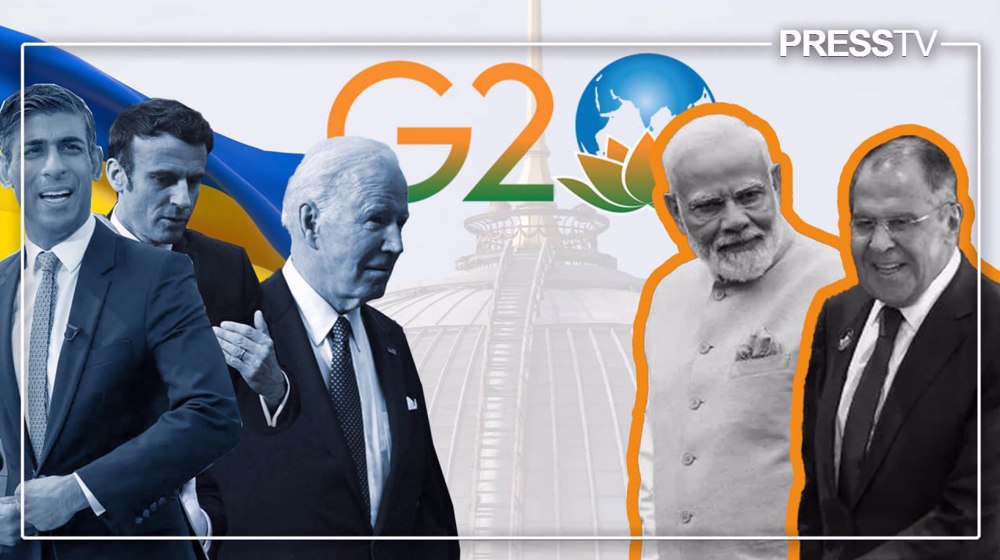


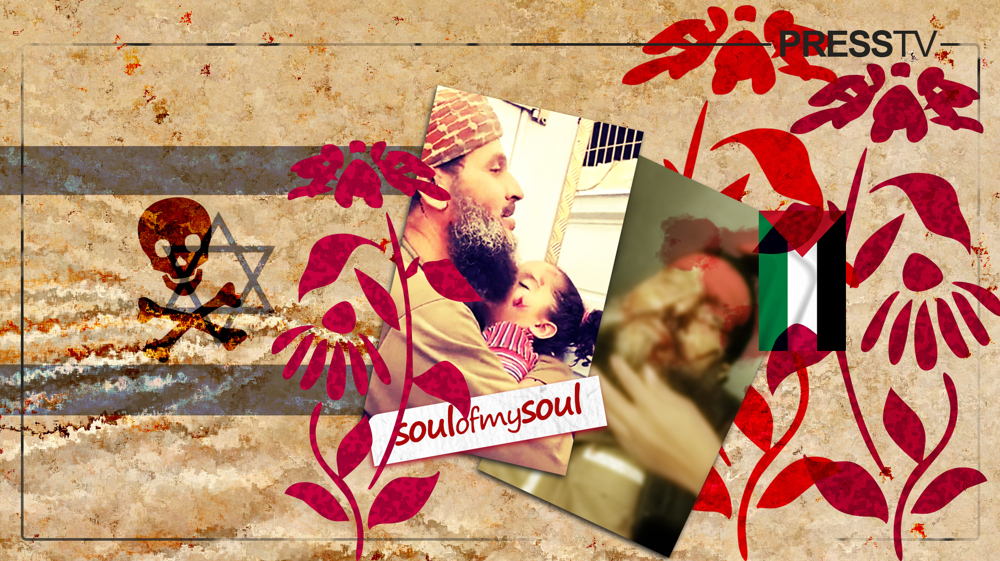



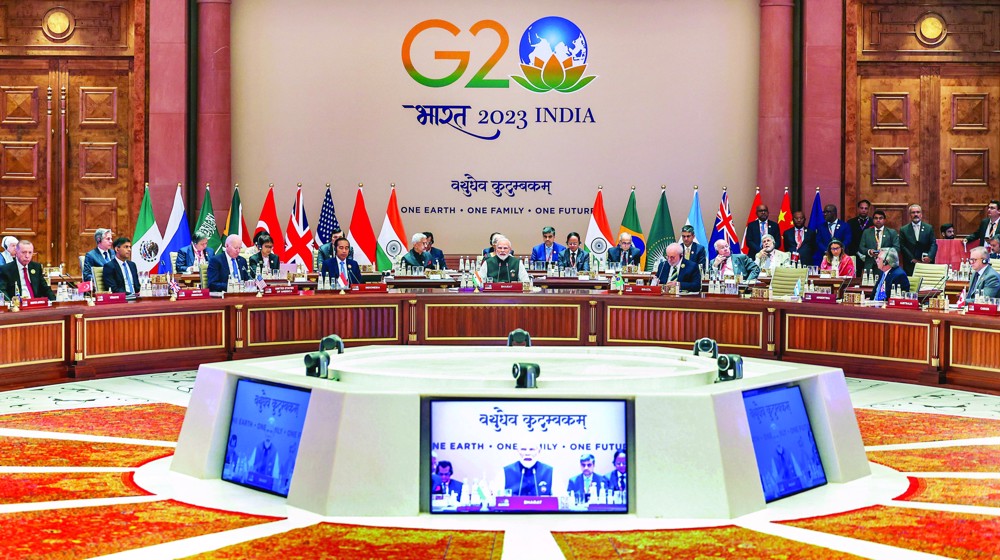
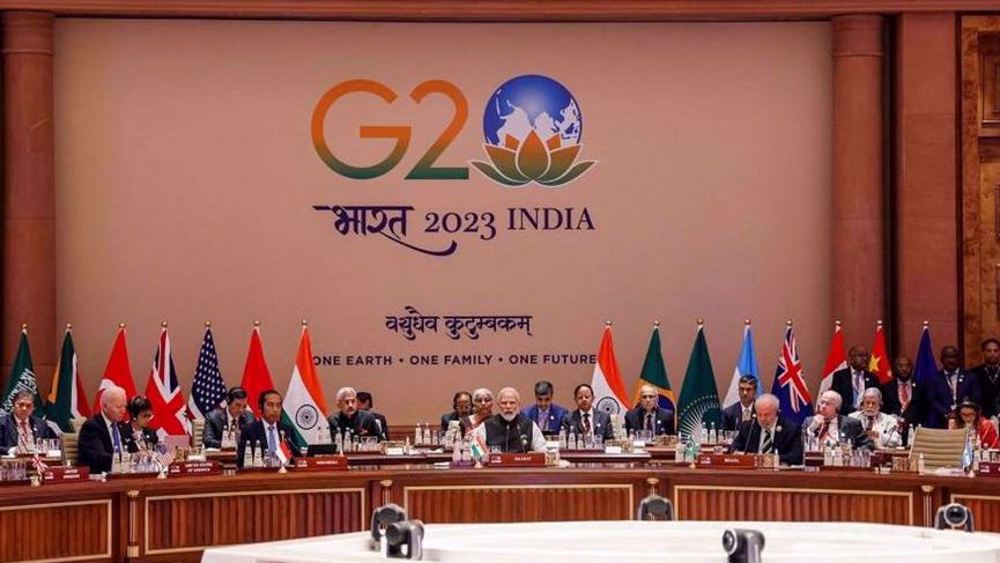
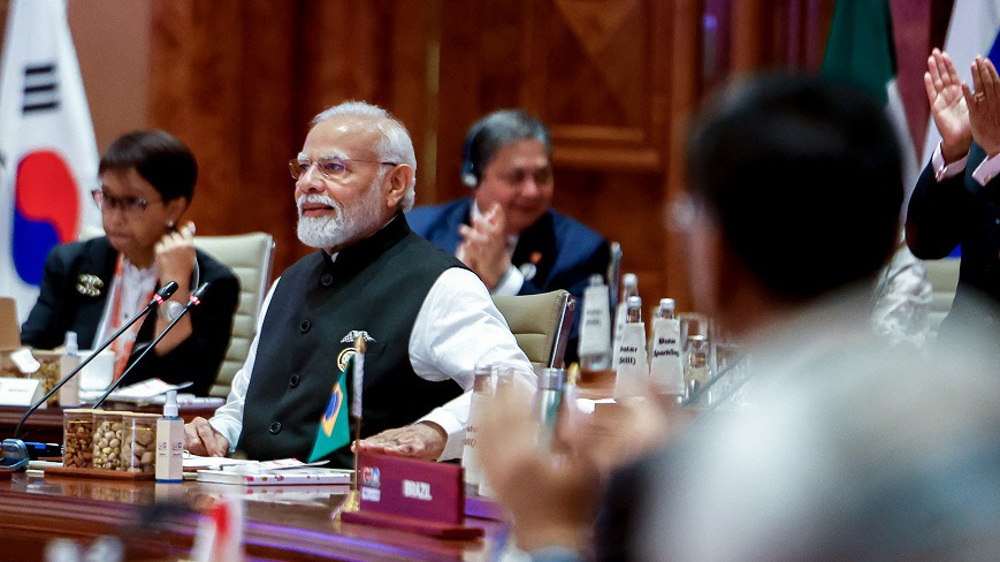
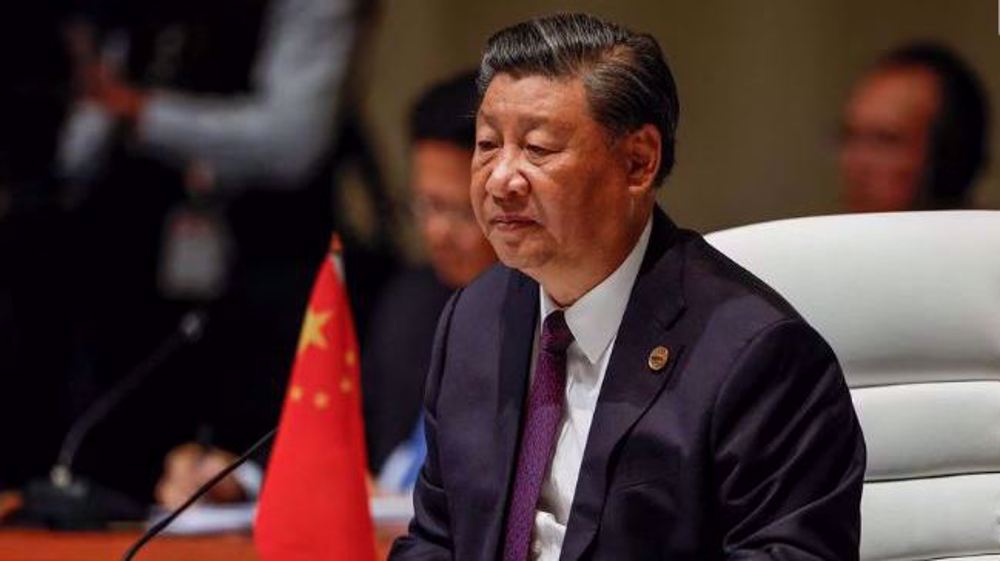
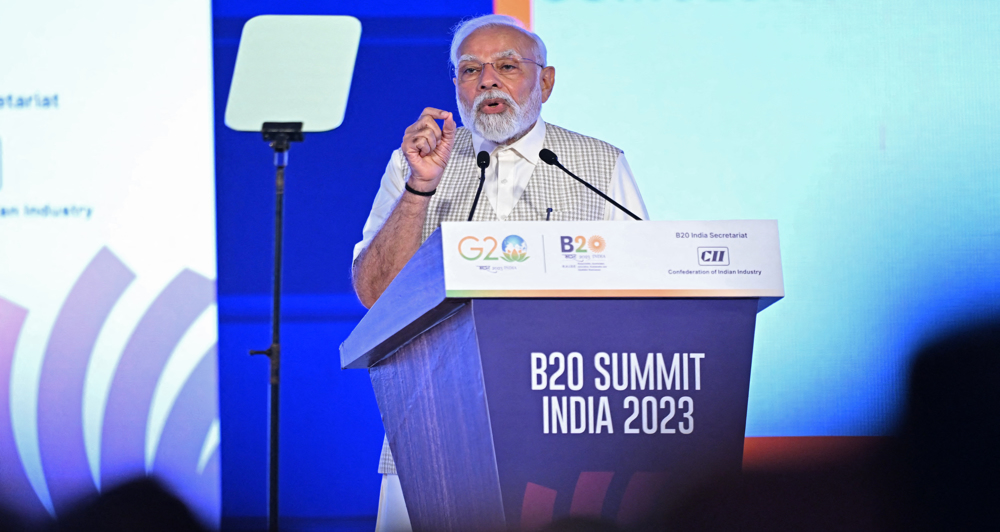

 This makes it easy to access the Press TV website
This makes it easy to access the Press TV website